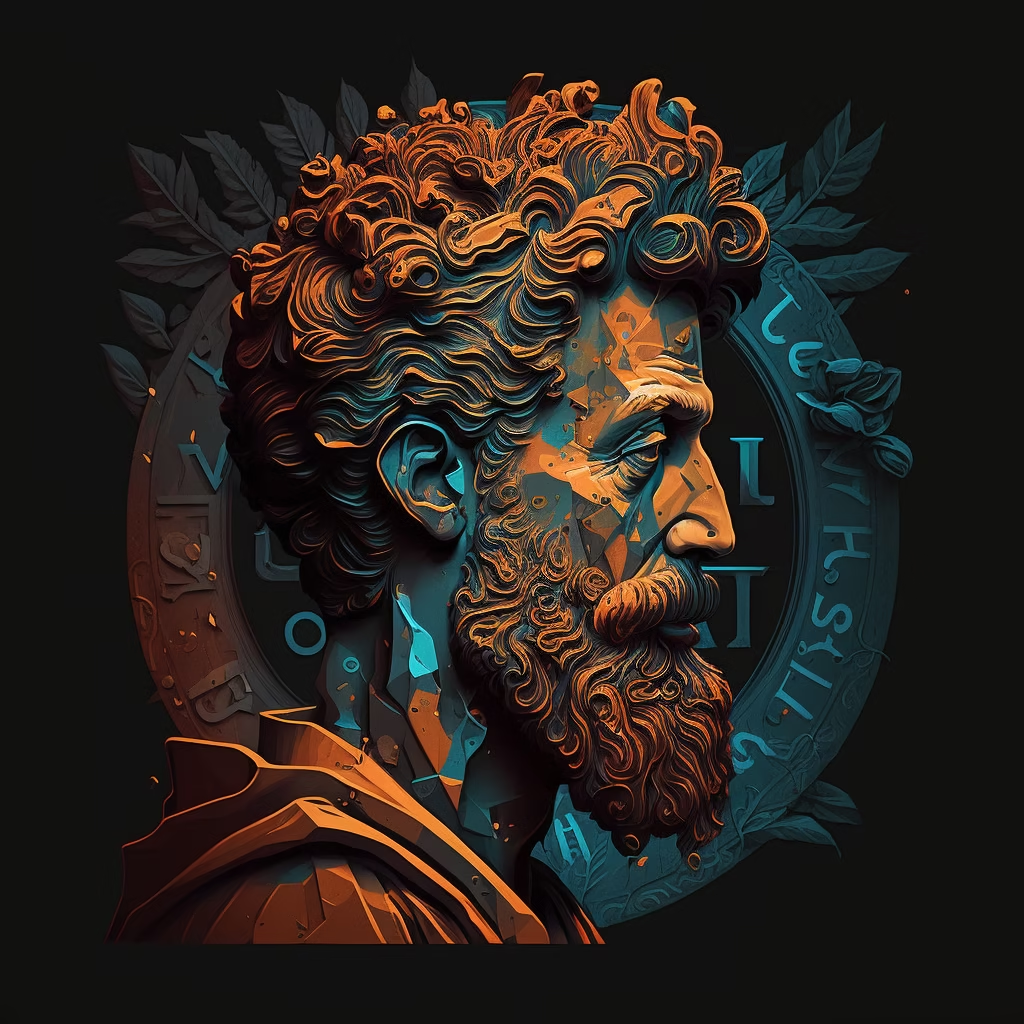
Words of Marcus
Stoicism for Modern TimesStoicism is a school of Hellenistic philosophy, dating back to ancient Greece and early Rome. It is a school of philosophy that focuses on living a positive life through cultivating self-control, resilience and the ability to navigate challenges in life with equanimity.
Although the texts are ancient, the school of thought still holds much value in today's society. Perhaps more so than ever, life is infinitely complex, and trouble will invariably brew. Stoicism helps us cope with life's ordeals, arguing that even though all that is malign might happen, we'll still be fine — and stronger for it.
There are a few men whom slavery holds fast, but there are many more who hold fast to slavery. — Seneca
Stoics argue that suffering is more often perceived or anticipated, than it is present in the here and now. It is within our power to control our mind, and thus our opinion of events. For instance, while someone may hurt you physically, the pain is — unless serious injury is inflicted — only temporary. However, more often than not the thought of the act itself lingers for far longer than the physical pain. In this sense, it is the thought of the pain rather than the pain itself that disturbs us, and it is fully within our power to dispel this thought.
Throughout our lives, pain and misery is inevitable. We can resist, and blame fortune for all the evils it bestows upon us. This will invariable lead to wretched thoughts, and as it is our thoughts that shape us, an unhappy life. Alternatively, we can accept that it is part of the natural course of the world, and navigate these troubles equanimously, not allowing them to trouble our perception more than strictly needed. As Seneca put it eloquently: "He who takes his orders gladly escapes the bitterest part of slavery — doing what one does not want to do".
The ruling faculty is what guides our thoughts, emotions, and ultimately our actions. It enables us to make well-reasoned decisions, and is the primary source of human excellence. In strengthening our ruling faculty, we can attain self-control, inner peace, and moral virtue. Everything is opinion.
Such as are thy habitual thoughts, such also will be the character of thy mind; for the soul is dyed by the thoughts. Dye it then with a continuous series of such thoughts as these: for instance, that where a man can live, there he can also live well. But he must live in a palace;—well then, he can also live well in a palace. — Marcus Aurelius, Mediations 5:16
Forming rational and virtuous patterns of thoughts, we can form ourselves as strong, noble and resilient individuals. A virtuous life can be lived under any circumstance, palace or slums. External conditions are far less important than our internal disposition, and our disposition is always under our own control.
Recognising what is within our control, and what is not is a quintessential element of stoicism. Focusing on what is within our control, such as our thoughts and actions, rather than becoming overly concerned with external events and outcomes beyond our control is quintessential to accepting the natural order of the world.
Stoicism is commonly represented as indifference to emotions, events and outcomes. In this sense, a stoic person would live a life of disinterest. This is a mischaracterisation. It is a philsophy that seeks happiness and tranquility, but as opposed to Epicureanism, it does so through not letting negative emotions overwhelm us, rather than through seeking pleasure.